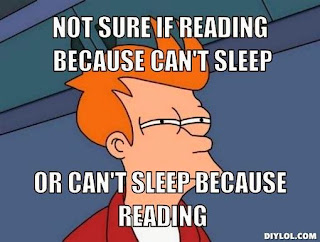Marc McCutcheon's book
Building Believable Characters is a great tool for writers to create believable characters. I'm in the section of the book called the PERSONALITY TRAITS INVENTORY. Today's traits are Charming, Devious, Puritanical, and Happy. Let's dig in.
CHARMING/WELL-BRED is another of those that could lead to stereotype if you're not careful. This character is gracious, polite, and smooth. They make others comfortable. They are the life of the party. Ladylike, tactful, warm, friendly, personable, they are the child every parent wishes they had, the wife every man wants as his own, the friend everyone wants to be with. They are sexually attractive. Clean and neat. Considerate. Darn-near perfect. And that's the problem--how often do you run across someone in your life that's this wonderful? Do you truly love them, or in the back of your mind do you envy them or wish they'd step into a mud puddle just once? All this awesomeness is good in a protagonist, but it must be coupled with a flaw or she'll seem cartoonish. Ruin her looks with a hairy wart on her chin. Or give her a bit of a temper and a unique way of displaying her temper--no shouting or door-slamming for this woman, she plots her revenge in secret and gets her revenge by publicly humiliating her enemy. Play with it and see what you come up with.
The next trait is DEVIOUS/CONNIVING/EVIL. This is fabulous for the antagonist, but can you use this trait for a protagonist? This guy is wily, plotting, false, manipulative, lying, backstabbing, two-faced, sneaky, power-hungry, and venomous. Think Scrooge times two. Actually, Scrooge is a great example of how to pull off this nasty protagonist. Use these traits as his flaw to overcome, make the stakes ultra-high (death, in Scrooge's case), and reel the reader into a fabulous ride of conflict after conflict.
ANNOYING is up next. This personal in a know-it-all, or tells offensive jokes in mixed company, or touches people too much, or whines. He's shallow, gossipy, smug, self-righteous, rude, and insincere. He's not exactly evil, although he is self-absorbed. He doesn't know how to behave politely with others. How did he get this way? Is he desperate for attention? Is his sense of self-worth grossly exaggerated (Mommy raised a prince)? Is he socially awkward because of a secluded upbringing? This one has lots of potential because it's so varied, but again, he must be sympathetic.
PURITANICAL/PROPER could get you in a bit of trouble if you don't handle it well. This character is goody-goody, politically correct, morally superior, sees others as immoral heathens (but never himself--he sees himself as clean and righteous), quotes Bible verses at every opportunity (or Koran, or Torah, or whatever religion you make him). He's modest, law-abiding, honest, attends church regularly, doesn't drink or smoke, and is judgmental. He knows what's best for everyone and expects everyone around him to heed his words. Once again, be ultra-careful about stereotypes with this one. The old Bible-thumper from the South has been done one-too-many times, and quite frankly, he's not sympathetic. This would make a great comic-relief, though, or a good fanatical antagonist.
The last trait I want to cover today is HAPPY/JOVIAL. This lady is a treasure. She's good-humored, easy going, funny, light-hearted, relaxed, friendly. She smiles a lot and sees the glass as half-full. She's always smiling, or humming, or doing good deeds. She's also too good to be realistic, too syrupy and sweet. She needs a flaw that brings her back into the realistic realm, because Pollyanna has been done several times and Disney princesses, while wonderful, belong to Disney. So give your happy character something to be sad about (an ailing parent, a dead-end job, a disrespectful/willful child) and make sure her inner flaw stands in her way of achieving Her Goal.
(This is Belle, the happiest of all the Disney princesses. This photo courtesy of wikipedia)
What negative traits would you pair with a charming or happy personality? How would you make an annoying character likable? What positive traits would you give a devious or puritanical character to make them believable? Share your thoughts in the comments section. I love hearing from ya'll.
-Sonja













